Now that’s kind of personal…
We all have certain friends and family members we choose to surround ourselves with. Similarly, we have relationships with product and service brands we interact with on a daily basis.
Our friends have reputations, recognizable identities, style and voice. We know where they usually hang out and can count on them to make us feel a certain way. Don’t we all have that friend who—regardless of how bad our day’s been—knows exactly what will lift our spirits, give us confidence, make us laugh, feel more attractive, smarter, healthier, more connected, and so on? Our most loyal friends simply “get us.”
As consumers, we connect with (often unconsciously) and become loyal to brands because they accentuate the vision we have for ourselves—our personal brand. We trust them to perform a specific role in our lives.
A person can get away with a weekend or two where they feed their alter ego and surprise their friends by doing something spontaneous. For instance, someone known to be a “Compassionate Caregiver” might want to be a “Rebel Without a Cause” for a weekend (this may explain running into your OB/GYN at Sturgis last year). But most brands don’t have that flexibility without serious repercussions—like wasting a lot of resources and losing customers. When a brand we love does something in contrast to our expectations, we feel a sense of betrayal.
A Consistent and Purposeful Brand in Action
It’s no coincidence that all Chick-fil-A employees greet you with “How may I serve you” and say “my pleasure” and “thank you.” These simple phrases reflect the fast food chain’s personality as, primarily, a servant (caregiver) brand. Note, they emphasize their influencing innocent and jester personality traits in their “EAT MOR CHIKIN” cow ad campaign. According to a QSR report, Chick-fil-A employees said “thank you” in 95.2% of drive-thru encounters, based on data from nearly 2,000 visits to 15 restaurant chains. That out-paced the competition by over 10% which statistically makes them the most polite chain in the restaurant business. It’s also no coincidence that they’re kicking the gizzards out of their competition.
Needless to say, understanding your brands’ personality and being able to consistently communicate it to your audience is (or should be) of paramount importance. And this isn’t just for the marketing and advertising folks; it’s an inside-out, top-to-bottom kind of approach. Every interaction your customer has with your brand should be carefully considered, and everyone—from the mailroom clerk to the CEO—needs to be singing from the same hymnal.
The Matter Approach
During the brand strategy phase, we work through several exercises with our clients. One of them is uncovering the brand archetype. Throughout literature, entertainment and history, 12 identifiable characters can be found. Psychologist Carl Jung believed these archetypes reside within the collective human unconscious, spanning cultures and continents. We believe they also reside in brands—and the most successful brands leverage this knowledge to tap into the human psyche, helping drive extraordinary results to their bottom line.
At Matter, we begin by conducting a survey with key stakeholders of the brand. The questions help to uncover the personality traits each respondent believes the brand embodies. We analyze the results and rank the primary and influencing archetypes. We also assess the competition’s archetypes. It’s an incredibly helpful approach which allows us to visualize and verbalize an authentic brand experience—and how we can create separation from the competition.
Below are the 12 archetypes and short explanations of each. Which archetype, or combination of archetypes, is your brand?

REBEL / Break the rules.
Brands that imbue the Rebel archetype usually appeal to a part of society that feel disenfranchised or mistreated. These brands lead the charge on behalf of this community, creating opportunities that the average person would not be able to achieve alone. There’s no room for elitism here. The Rebel brand is about balancing the scorecard, and as long as they play fair and are lead by their moral compass, their followers will stay true.
Example Brands:
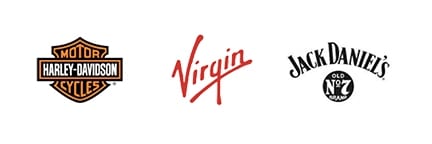

EXPLORER / Discover a new experience.
Explorer brands aren’t content to just “be.” They’re constantly seeking to find “what’s next” and gain more understanding of the world they live in, and they often challenge their customers as well. This restless pursuit is like honey to a bee for many consumers who like to take a challenge head-on. Boredom is worse than death for Explorer brands which is why many of these brands break through with new, innovative products.
Example Brands:
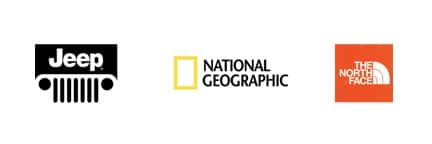

CREATOR / Craft something new.
Creator brands are often found in the disruptive technology and innovation space. They’re the pioneers of new stuff, typically having the wherewithal to make a few mistakes while at the same time being able to forge ahead as leaders in their industry. The changes they create aren’t just 2.0 upgrades—they’re breakthrough ideas that usually provide unfair advantage.
The people who follow these brands are considered the early adopters: willing to trial, change, upgrade and advocate the latest products and services.
Example Brands:
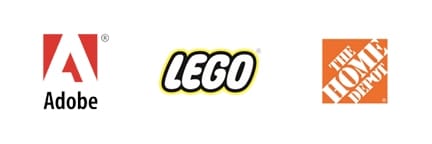

HERO / Achieve victory.
Typically, brands that assume the Hero archetype are in the business of helping people, of championing a cause or providing unexpected solutions. They are fearless in the pursuit of their goals. These brands focus on consumer segments that have a need they can’t satisfy themselves, or who want to join a good cause under another banner. Like any Hero, these brands are fallible. Beware the Hero whose words are louder than actions!
Example Brands:
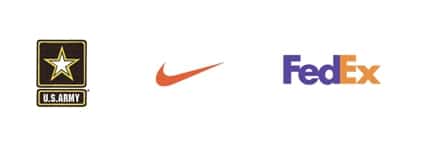

MAGICIAN / Affect transformation.
Brands that take on the Magician archetype are able to surprise and delight consumers with experiences that provide a sense of escape or empowerment. Their products and services have the power to transform habits, preferences and loyalties. Magician brands should always focus on creating magical customer experiences.
Example Brands:


WISE / Understand your world.
Any brand that helps consumers understand or gain knowledge about particular subjects fits into the Wise archetype. Research institutes, news services, education facilities and legal services are often using the Wise archetype to define their brand. Always willing to offer advice and mentor those who seek knowledge, the Wise is empowered by giving (not hiding) his wisdom.
Example Brands:

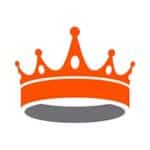
RULER / Exert control.
Ruler brands sit at the top of the food chain. They usually possess a lot of heritage in their category and have risen to the top with conviction and purpose. These brands usually own a high-status product or service, and being the leader of the pack, these brands offer a great sense of security and stability.
Sometimes their power can also be their undoing, losing the ability to react quickly to change and being overthrown by younger and more innovative brands.
Example Brands:
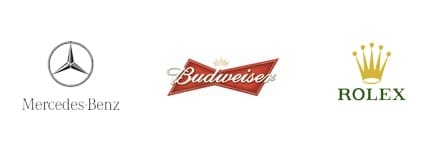

INNOCENT / Retain or renew faith.
There is a strong attraction to Innocent brand archetypes for those who believe in the goodness of others. These brands can be very alluring because they reinforce the goodness of humanity. There is also a sense of romance about brands who see the world as a happy place.
Example Brands:
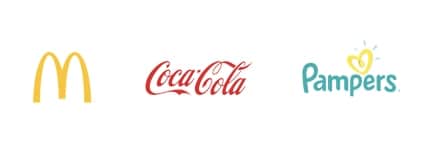

NEIGHBOR / Be okay with who you are.
The Neighbor brand is often a quiet achiever, delivering consistent quality day after day. They may not have a high profile brand, but their customers rely on them to be there for them without fuss or fanfare. Neighbor brands need to be careful that they don’t become complacent or lose their sense of purpose.
Example Brands:
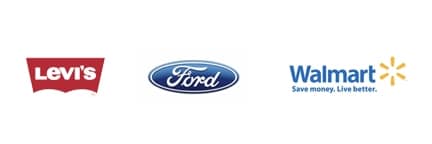

CAREGIVER / Care for others.
Brands that offer a sense of nurturance and care will do well adopting the Caregiver archetype. Not-For-Profits and community-focused organizations are obvious examples of Caregiver brands, however certain consumer brands such as baby care and financial services for the elderly can also assume this brand archetype.
Example Brands:
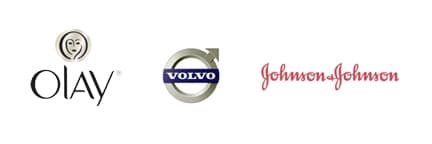

LOVER / Find and give love.
Brands that assume the Lover archetype are in the business of relationships. They are often service-led businesses that aim to bring people together in a fun and mutually beneficial way. Lover brands focus on emotional benefits rather than functional benefits.
Example Brands:
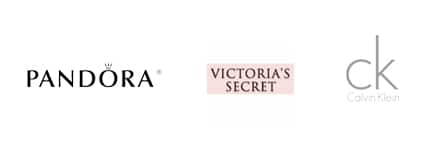

JOKER / Have a good time.
Joker brands appeal to consumers who like to challenge convention—or have their own conventions challenged. They work well in issue-rich territories where they can highlight problems without being confrontational or aggressive. They can be very effective at affecting change in a positive way.
Example Brands:
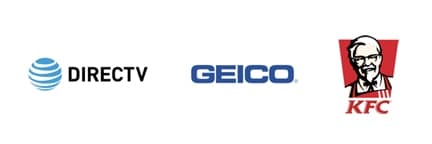
Let’s talk about your brand personality and how we can leverage it to more personally (and emotionally) connect with your audience. Contact us and get started today.
(matter) is an independent, award-winning design agency with locations in Cincinnati, Ohio and Austin, Texas and is recognized as a top Branding Agency on DesignRush. Our expertise is blending strategy and creativity to build and activate brands. Together, we can create relationships with your audiences that drive desired business results. Your brand matters. Let’s cut through the clutter and tell the world.
All product and company names are trademarks™ or registered® trademarks of their respective holders. Use of them does not imply any affiliation with or endorsement by them.
